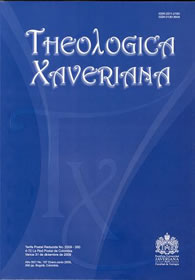Resumen
Este trabajo pretende revisar el concepto de nacionalismo etnocéntrico aplicado por algunos autores al caso de Israel, desde su nacimiento como pueblo hasta la pérdida total de su autonomía en 135 d.C. Mediante textos religiosos y estudios históricos, se pretende demostrar que el nacionalismo de este pueblo no estaba basado en el liderazgo supremo de un sumo sacerdote, pues existían tres poderes –profético, sacerdotal y político–, de los cuales el primero fue el de mayor peso moral por cuanto corregía a los otros dos. En algunos períodos, el poder sacerdotal y el político fueron ostentados por la misma y única persona, aunque se trataba de campos de actuación separados.
Esta revista científica se encuentra registrada bajo la licencia Creative Commons Reconocimiento 4.0 Internacional. Por lo tanto, esta obra se puede reproducir, distribuir y comunicar públicamente en formato digital, siempre que se reconozca el nombre de los autores y a la Pontificia Universidad Javeriana. Se permite citar, adaptar, transformar, autoarchivar, republicar y crear a partir del material, para cualquier finalidad (incluso comercial), siempre que se reconozca adecuadamente la autoría, se proporcione un enlace a la obra original y se indique si se han realizado cambios. La Pontificia Universidad Javeriana no retiene los derechos sobre las obras publicadas y los contenidos son responsabilidad exclusiva de los autores, quienes conservan sus derechos morales, intelectuales, de privacidad y publicidad.
El aval sobre la intervención de la obra (revisión, corrección de estilo, traducción, diagramación) y su posterior divulgación se otorga mediante una licencia de uso y no a través de una cesión de derechos, lo que representa que la revista y la Pontificia Universidad Javeriana se eximen de cualquier responsabilidad que se pueda derivar de una mala práctica ética por parte de los autores. En consecuencia de la protección brindada por la licencia de uso, la revista no se encuentra en la obligación de publicar retractaciones o modificar la información ya publicada, a no ser que la errata surja del proceso de gestión editorial. La publicación de contenidos en esta revista no representa regalías para los contribuyentes.


